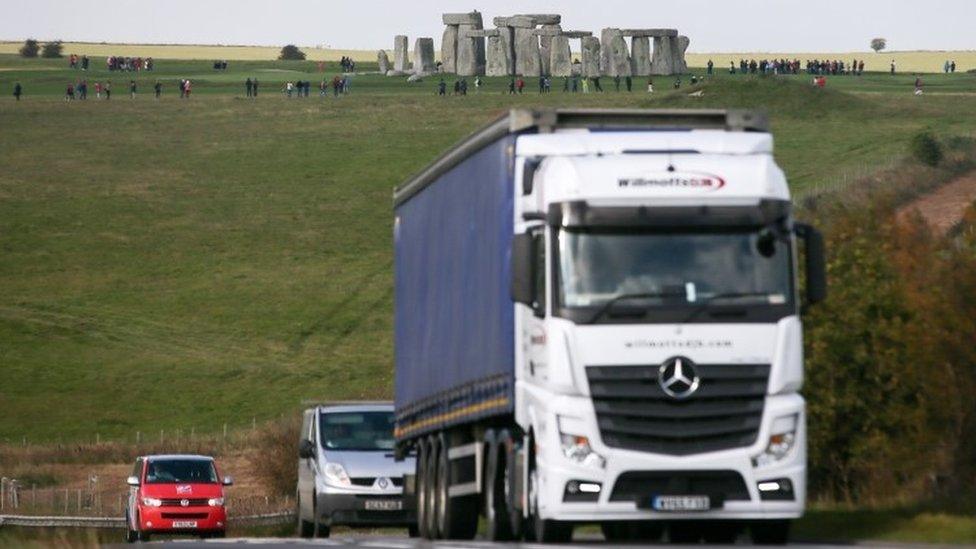Stonehenge A303 tunnel plan approved by transport secretary
- Published
- comments
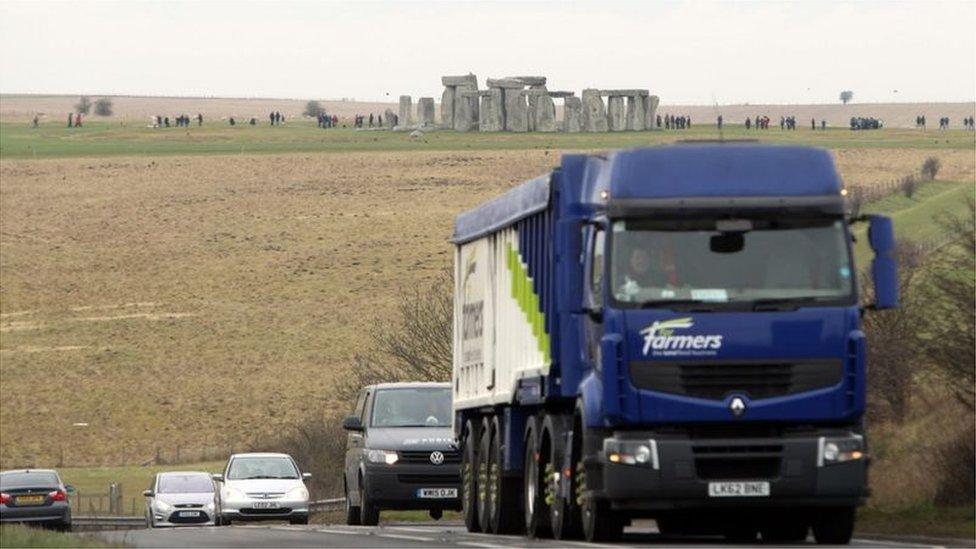
The Planning Inspectorate said the decision was made following "careful consideration"
A plan to dig a £1.7bn road tunnel near Stonehenge has been approved by the Transport Secretary.
The A303, a popular route for motorists travelling to and from the south west, runs within a few hundred metres of the world heritage site.
The decision to build a two-mile (3.2km) tunnel out of sight of the monument goes against the recommendations of planning officials.
Campaigners said it was a "complete violation" and "international scandal".
The Planning Inspectorate had recommended Transport Secretary Grant Shapps withhold consent, warning it would cause "permanent, irreversible harm" to the World Heritage site.
But the Department for Transport wrote to Highways England stating: "The Secretary of State is satisfied that, on balance, the need case for the development together with the other benefits identified outweigh any harm."
Sarah Richards, the Planning Inspectorate's chief executive, said there had been a "great deal of public interest in this project".
She said: "A major priority for us over the course of the examination was to ensure that communities who might be affected by this proposal had the opportunity to put forward their views.
"As always, the examining authority gave careful consideration to these before reaching its conclusion."
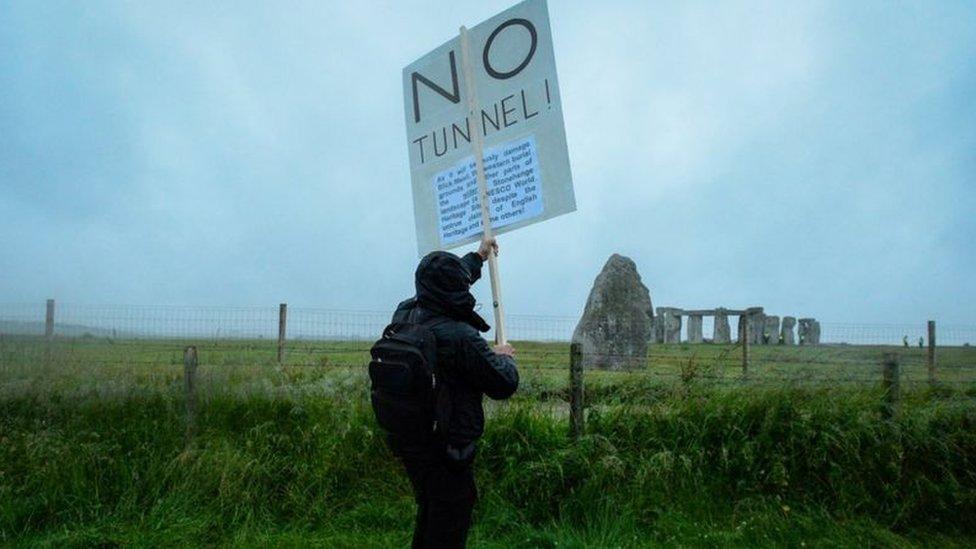
Some environmentalists and archaeologists have voiced their opposition to the plan due to its potential impact on the area
Some environmentalists and archaeologists had voiced their opposition to the plan due to its potential impact on the area.
Tom Holland, from the Stonehenge Alliance, said the scheme was "a £2 billion white elephant" and called the decision "shocking and shameful".
"The decision to inject a great gash of tarmac and concrete into Britain's most precious prehistoric landscape is one that ranks simultaneously as spendthrift and sacrilegious," he said.
"This has huge implications not just for Britain, but for the entire world. What's to stop people at Giza (site of the pyramids), or in Rwanda getting rid of gorillas because they're in the way of mining developments?."
Cas Smith, a druid and anti-tunnel campaigner, said it was a "complete violation".
"You wouldn't dream of pushing a bore tunnel next door to Salisbury Cathedral, so why Stonehenge," she said.
'Precious for humanity'
Prof David Jacques, from the University of Buckingham, described the news as "gut-wrenching".
"The tunnel is going to clearly compromise the archaeology," he said.
"Stonehenge is precious for the whole of humanity, for our understanding of how we have adapted and evolved as a species since the Ice Age.
"It's an international scandal."
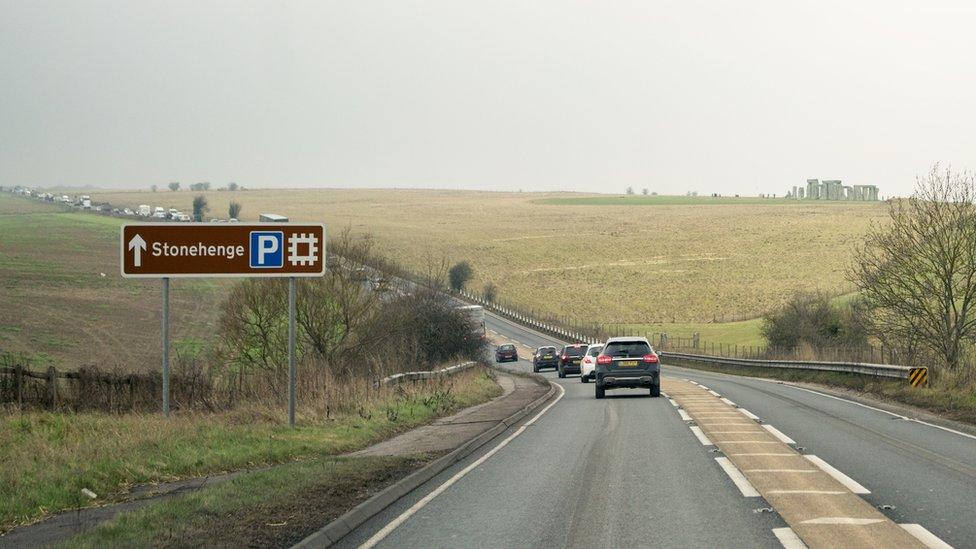
Highways England said the cost range for the whole scheme is between £1.5bn to £2.4bn but it is "currently working to £1.7bn"
In June, it emerged that a team of archaeologists had discovered a ring of at least 20 large shafts within the ancient religious monument, a short distance from the stones.
But Highways England said the finds were "well outside the scheme boundary" and no closer than 500 metres from the planned road upgrade.
Chief executive Jim O'Sullivan welcomed the decision and said: "The A303 Stonehenge tunnel project is part of the biggest investment in our road network for a generation.
"This transformational scheme will return the Stonehenge landscape towards its original setting and will improve journey times for everyone who travels to and from the South West."
'Great blight'
Anna Eavis, from English Heritage which looks after Stonehenge, said the scheme would "restore the ancient landscape" around the monument.
"At the moment the A303 is a great blight which cuts through the world heritage site," she said.
"The project will transform this great blight so people will be able to walk freely and experience those monuments without the assault on the senses."
There is now a six-week period in which the decision can be challenged in the High Court.
Preparatory work is due to begin in spring next year, with the five-year construction phase expected to start by 2023.
Highways England said the cost range for the whole scheme was between £1.5bn to £2.4bn but it was "currently working to £1.7bn"
Chancellor Rishi Sunak announced in March that funding was in place for the project.
Public-private funding was due to be used to finance the work, but in October 2018 then-Chancellor Philip Hammond cancelled future deals using that model.
- Published15 September 2020
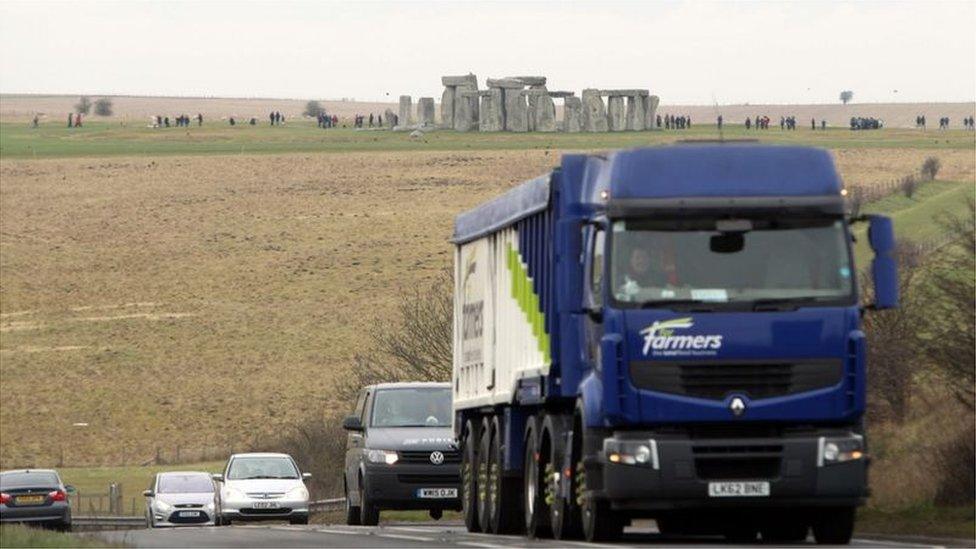
- Published16 July 2020
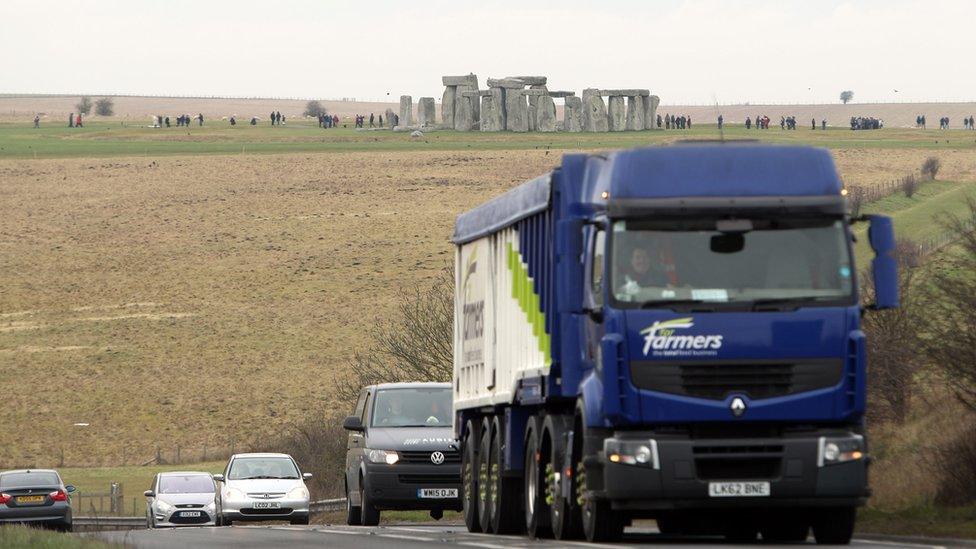
- Published11 March 2020

- Published4 July 2019
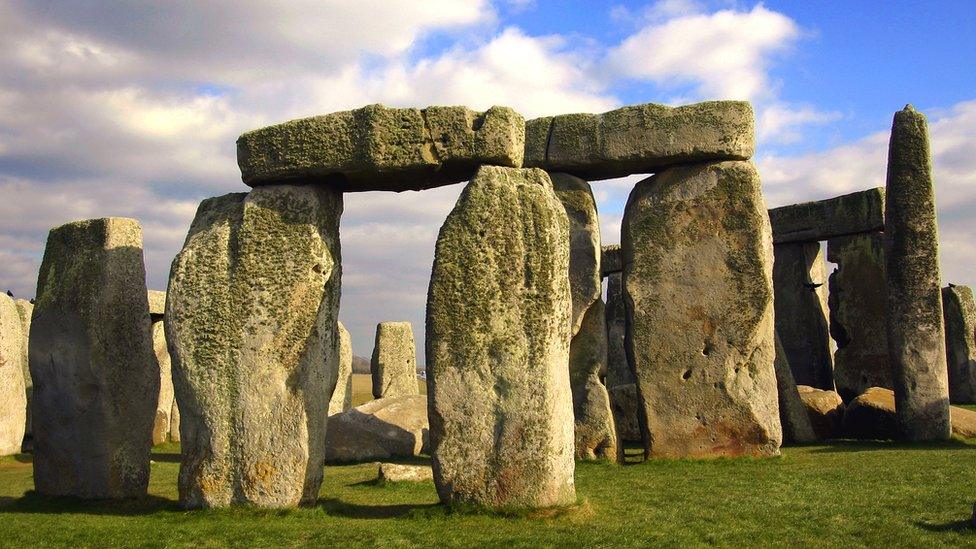
- Published5 April 2019
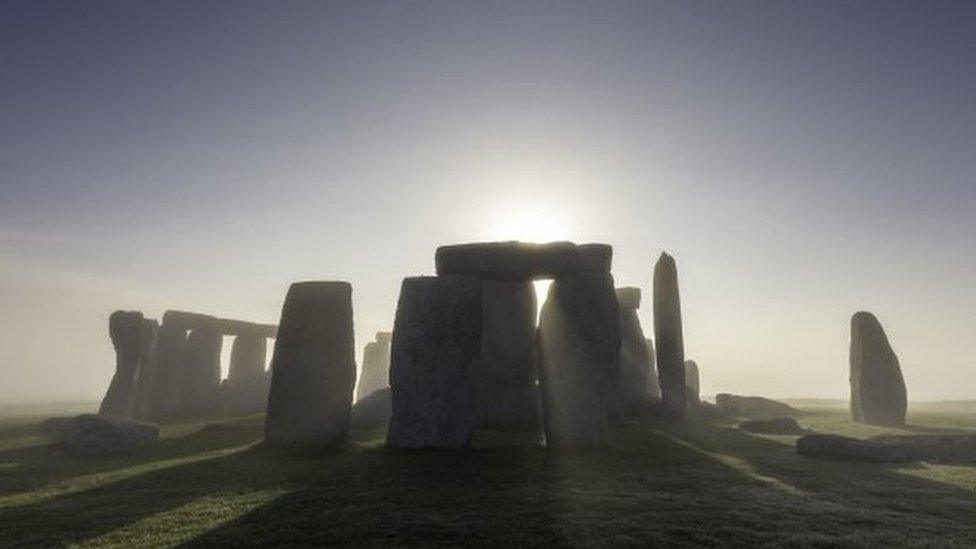
- Published6 December 2018

- Published8 February 2018
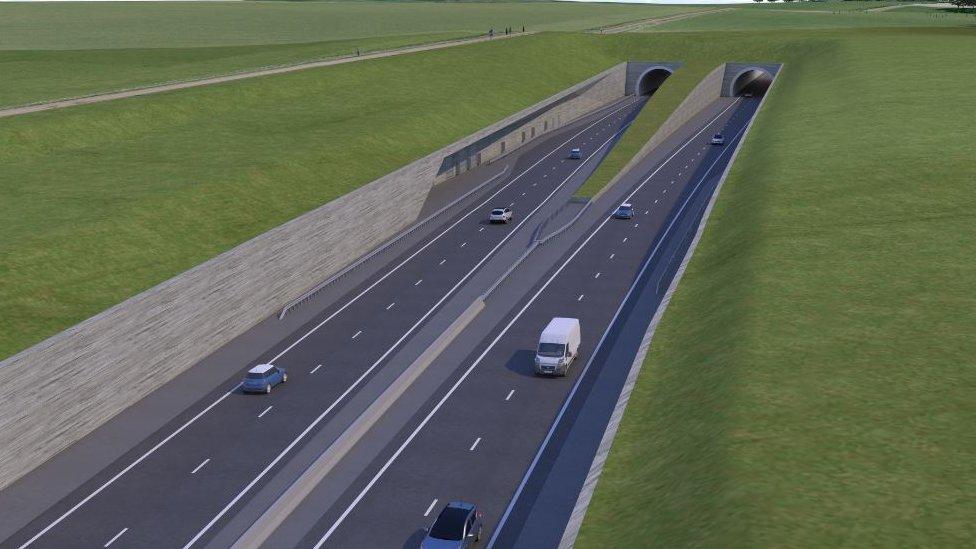
- Published10 February 2016
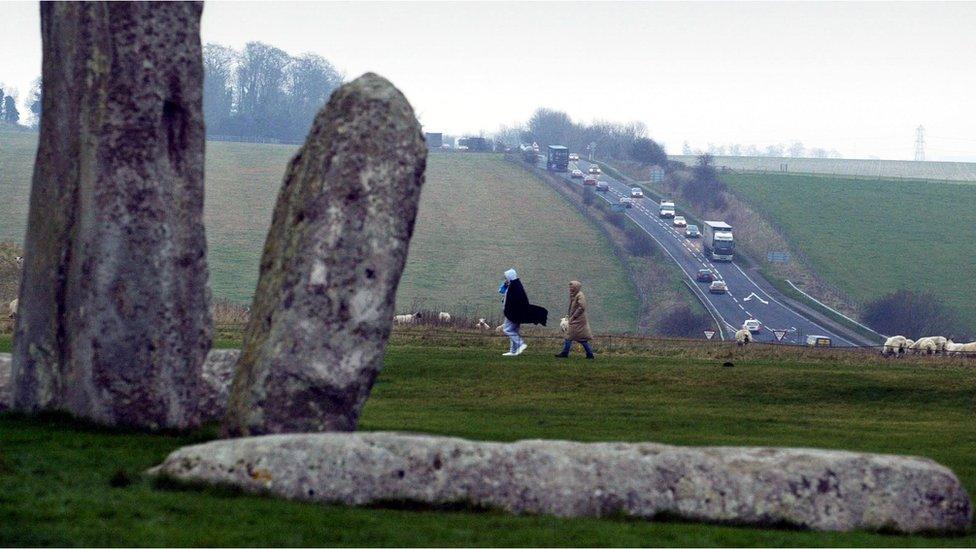
- Published28 October 2015
